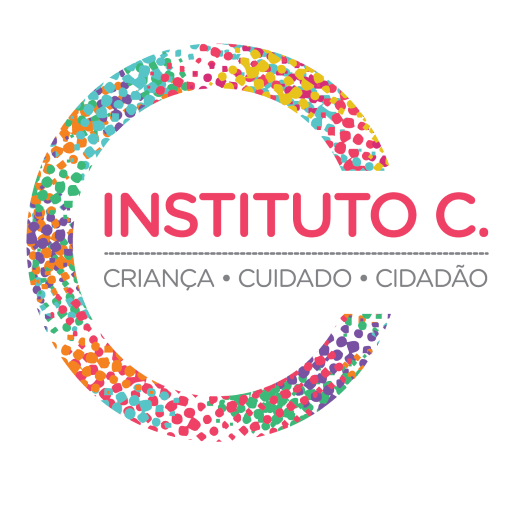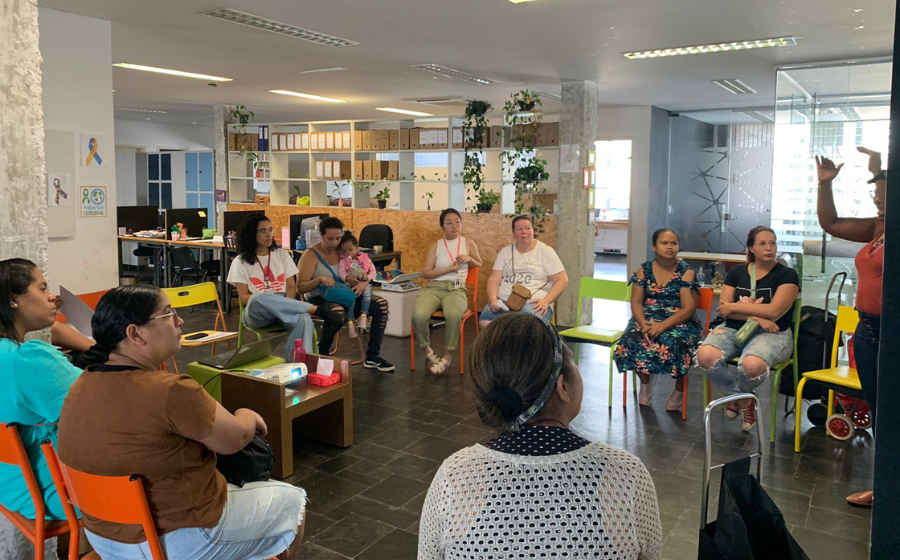Director of Instituto C Recognized as a 2024 Young Global Leader
Each year, the World Economic Forum selects outstanding individuals for the Young Global Leaders 2024 program, highlighting people under 40 who are making an impact in their communities through innovation and leadership.
This year, Vera Oliveira, founder and executive director of Instituto C, was named one of the Young Global Leaders. This honor not only recognizes her innovative leadership and the transformative impact of Instituto C, but also highlights the strength and influence of Brazilian women in global leadership.
Learn More About the 2024 Young Global Leaders Program
The Young Global Leaders program, an initiative of the World Economic Forum, aims to identify, connect, and mobilize the next generation of leaders under 40 who excel in fields such as politics, business, culture, and media.
The 3-year program brings together a diverse community of influential people who are addressing current global issues and working together to find impactful solutions throughout their professional journeys. In total, more than 80 leaders were selected this year.
Vera joins the program as one of two Brazilians chosen to promote conscious leadership, alongside Anielle Franco, Brazil’s Minister for Racial Equality.
According to Vera, being selected has had a major impact on both her personal and professional life:
“All the knowledge I’ll gain by participating in the program, the opportunity to connect with different worlds and people concerned with global impact, will help me bring new ideas to further improve Instituto C’s work.”
This year’s list also includes names such as Netflix executive producer Paz Hyde, former editor-in-chief of Vogue China Margaret Zhang, Olympic athlete Lewis Pugh, Indian actress Bhumi Pednekar, Turkish-American artist and designer Refik Anadol, Canadian news anchor Omayra Issa, Ecuador’s president-elect Daniel Noboa, and Chinese figure skater Han Cong.
Celebrating its 20th anniversary, the Young Global Leaders program has launched numerous impactful projects, such as Table For Two, which provided 1 million school meals in developing countries.
Female Representation in the Young Global Leaders Program
Over the years, the program has served as a platform for notable leaders who have positively impacted their countries and the world. Figures like Jacinda Ardern, former Prime Minister of New Zealand, and Queen Mathilde of Belgium are among those who have used this opportunity to expand their global contributions.
In the Brazilian context, female representation has proven fundamental: half of this year’s selected leaders are women. Past honorees include Luiza Mattos, partner at Bain & Company, and Mariana Luz, CEO of Fundação Maria Cecilia Souto Vidigal.
In 2024, the inclusion of Vera Oliveira and Anielle Franco not only recognizes their exceptional leadership, but also underscores the importance of their unique perspectives and lived experiences. As mothers and leaders, they bring an inclusive vision that is crucial for designing policies and initiatives that broadly benefit communities.
“The program has been an important platform for leaders, and seeing increased female representation—especially from Brazil—not only enriches the group’s diversity but also strengthens the solutions we can offer to global challenges,” says Vera.
This representation is essential to inspire other women and mothers in Brazil and around the world to aspire to leadership roles. Being part of the Young Global Leaders program is a powerful reminder that women can and should play a central role in shaping a more sustainable and equitable future.

Vera Oliveira’s Biography
Vera holds a degree in Public Relations, with postgraduate studies in Cooperative Games, and academic extensions in Business Administration from the University of California and Leadership of Social Organizations from Stanford University. She is currently pursuing a Master’s in Public Policy at Insper, further expanding her ability to drive positive social change.
“My dream was simple—to transform someone’s life, to make the world a little better each day, in the sense of leaving more behind than I take from the world. I never imagined I’d found an organization and see it become as recognized as Instituto C is today,” says Vera.
Impact and Contributions at Instituto C
Under Vera’s leadership, Instituto C focuses on supporting families in socially vulnerable situations, promoting autonomy and full citizenship. Its integrated and multidisciplinary approach treats families holistically, helping them build independence.
So far, the institute has assisted nearly 20,000 people and has been recognized as one of Brazil’s Top 100 NGOs for the past seven years.
Looking to the future, Vera shares Instituto C’s main goals:
“I hope this social transformation work—helping families escape poverty and pursue autonomy—can reach even more families. We aim to expand our operations to new locations, collaborating more with other organizations and public policies. We’re ambitious about growing our impact across cities.”
Support Instituto C
Help us reach more families. Become a donor!


